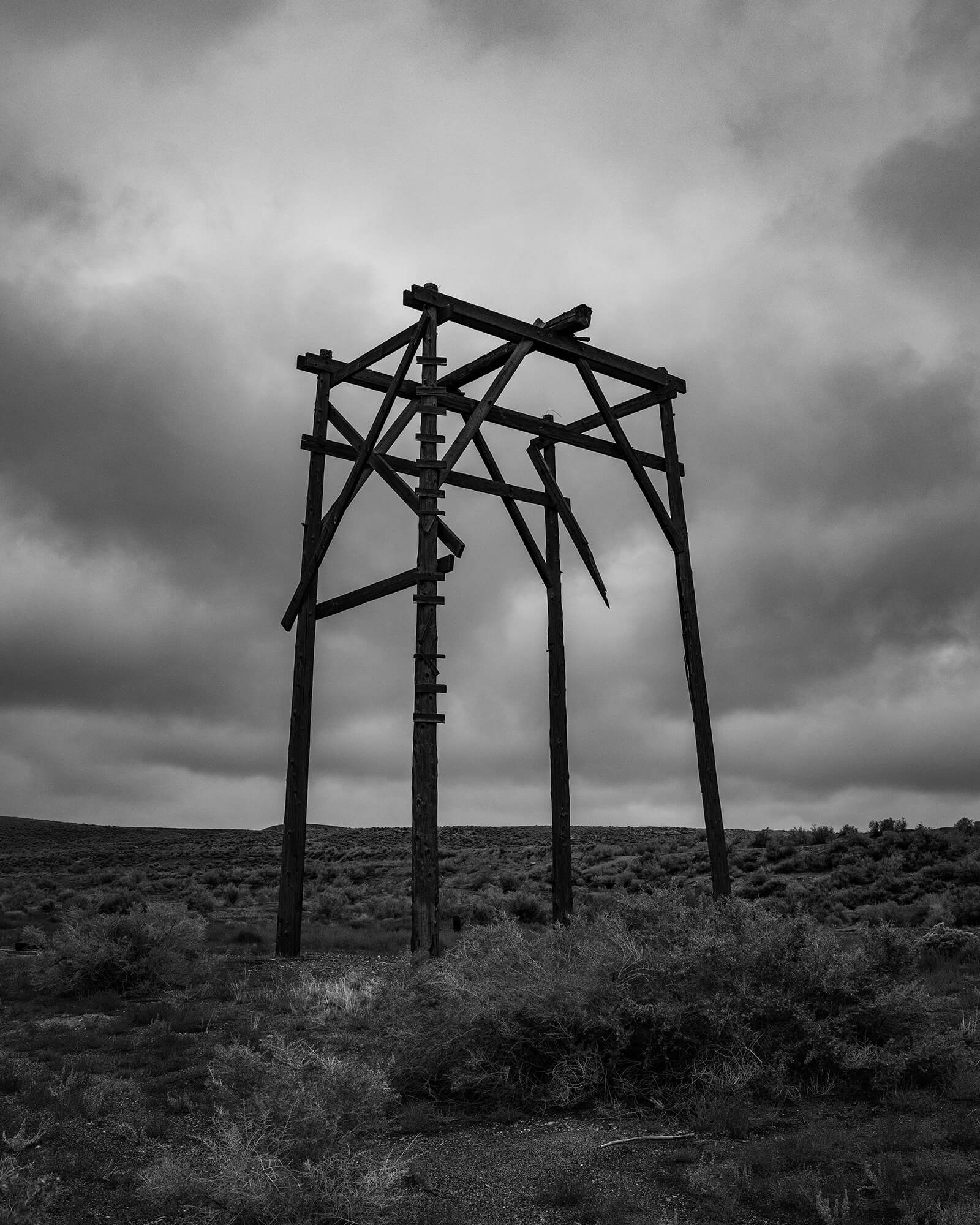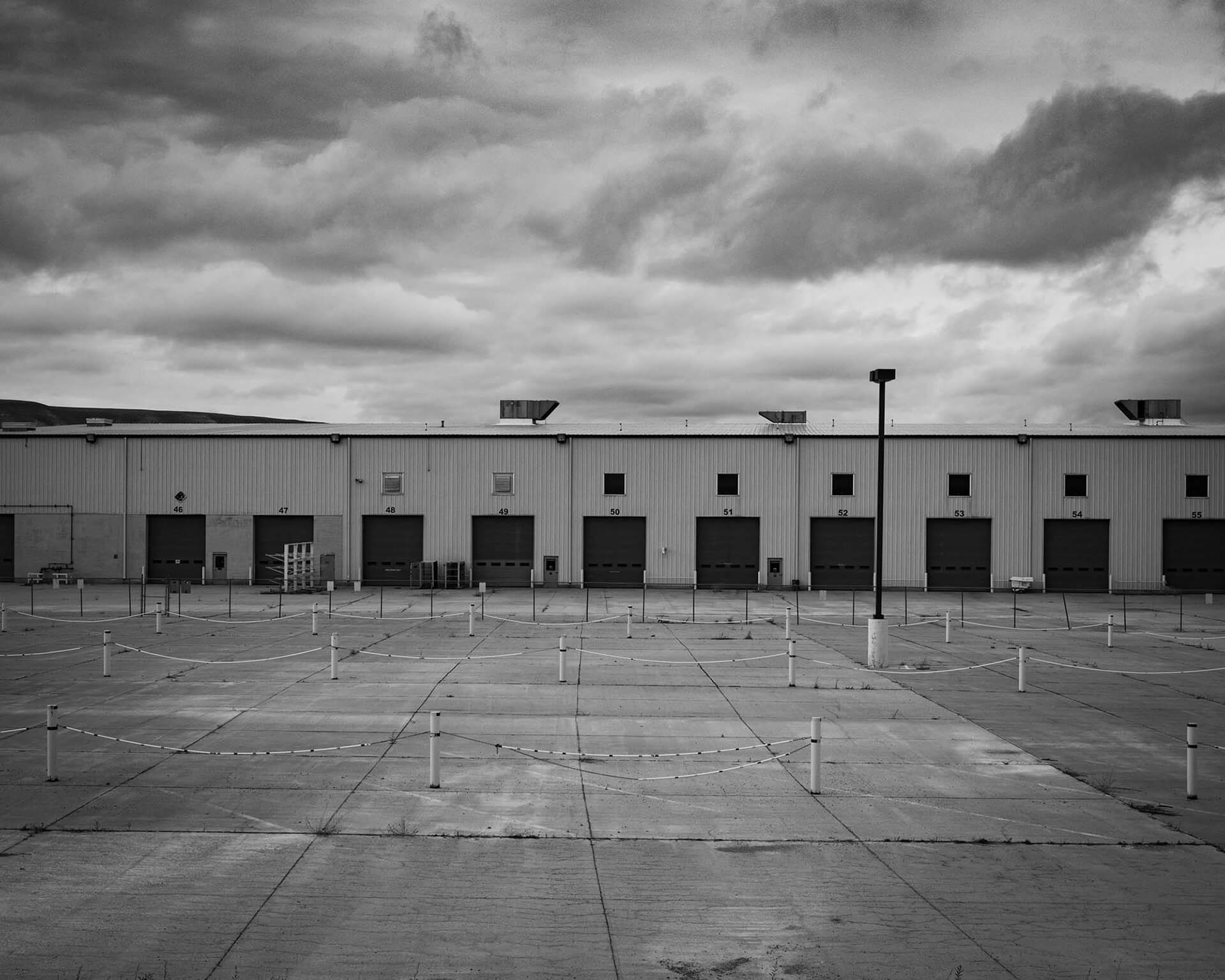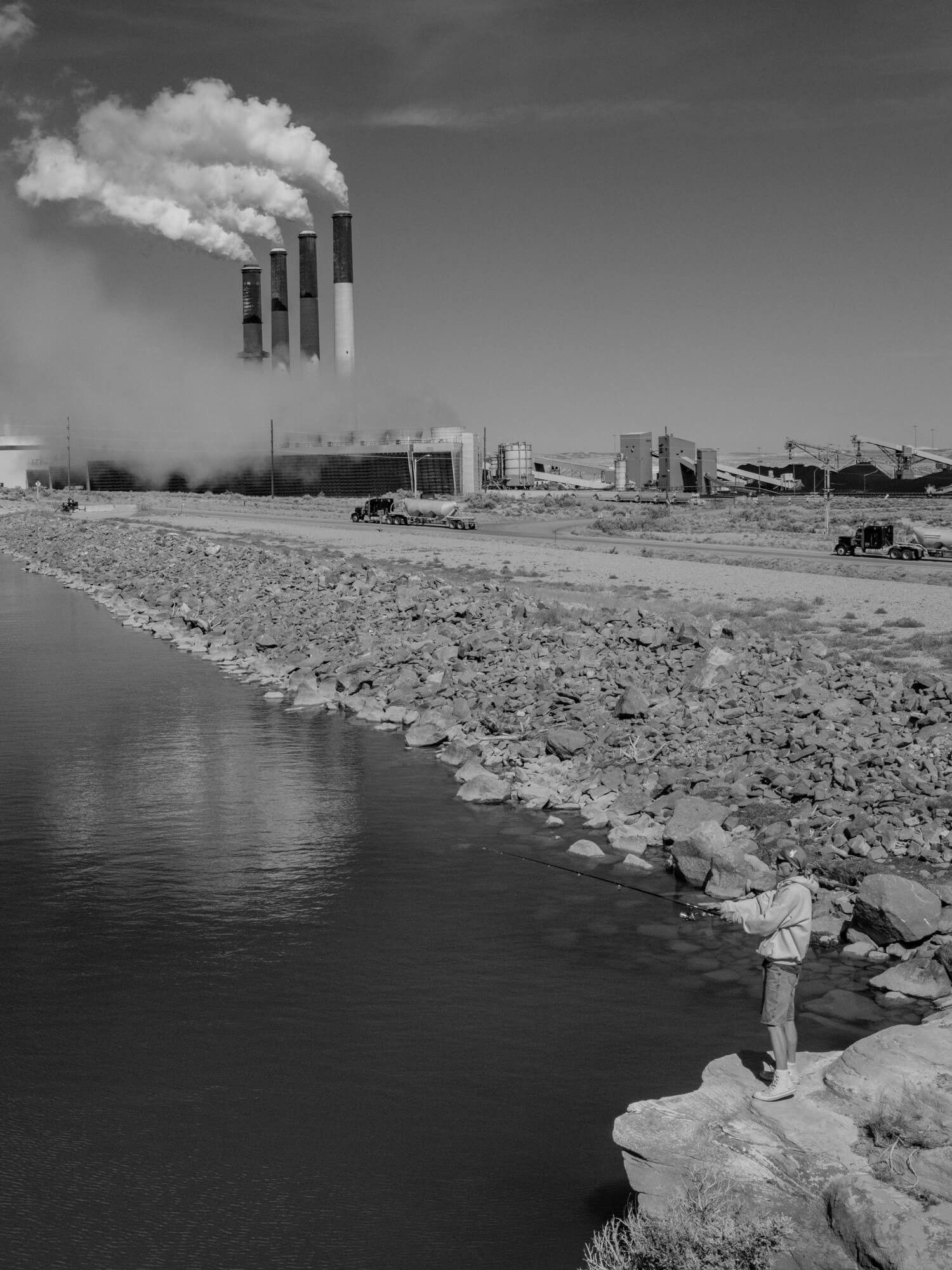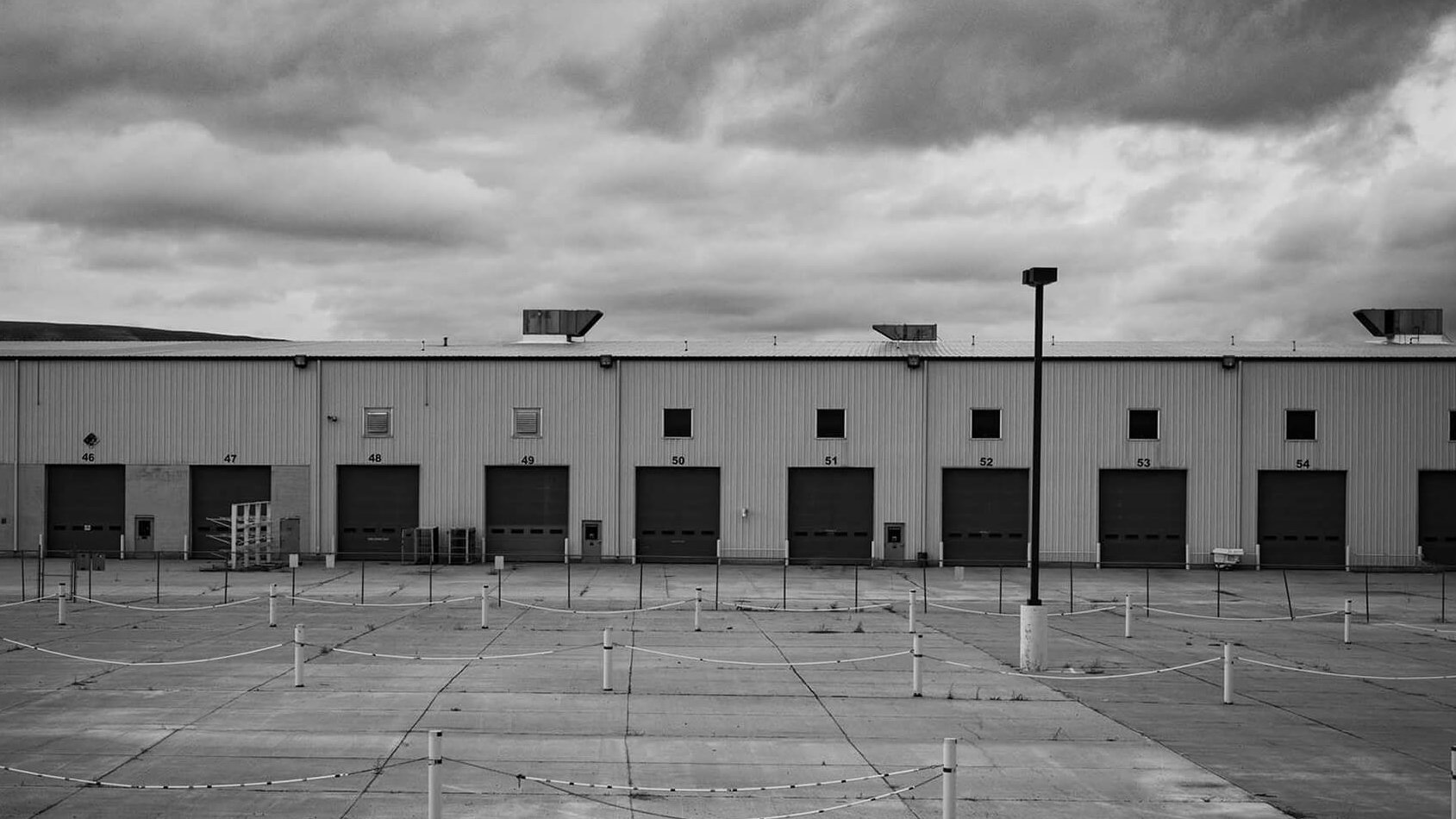Suicide has become an unwelcome fact of life in Rock Springs, Wyoming, where I was born and raised. The former coal mining boomtown has all the problems that fan the flames of suicide in rural areas: widespread addiction, a severe lack of mental health resources, tough manual labor, dwindling industries, a culture of rugged individualism, and a shitload of guns. Wyoming currently has the highest suicide rate of any state. Sweetwater County, where Rock Springs is located, has seen particular devastation.
There’s a gravitational despair in Rock Springs that statistics and academic studies simply can’t capture. The area is beautiful in a jagged way, with sharp air and open spaces slicing toward the horizon. But I’ve known nine people who shot themselves in Rock Springs, one guy who killed himself by running his car in a closed garage, and multiple others who overdosed. Since I was a child, people I know and love have been dying by their own hands. It tears holes in your psyche. Everyone I know from there has at least some experience with suicide. Everyone.
What follows are accounts from people who’ve experienced the devastation caused by suicide in Rock Springs. Some names have been changed to protect privacy.
Pete: I’m so used to it by now that it’s not much different to me than people passing away from natural causes.
I tried to kill myself three times, man. They put me in a mental institution. People think suicide is selfish, but you never know what someone is thinking at the time, or what they’ve been through. The first time I tried it, I was way young, like around eight years old. It scared the fuck out of my parents. The second time I was twenty-six. I tried to jump off the bridge that goes over the railroad tracks and Bitter Creek, that big bridge by the high school. People grabbed me and stopped me before I could do it. I went to the hospital and they asked if I was stable. I just said, “I’m good.”
I was still fucking around with my ex, doing dope and shit. They gave me Ambien when I was in the hospital. I took eighteen of those motherfuckers and ran into her house saying shit like, “I’m going to fucking die tonight.” That was a crazy time in my life. I never thought I would be that person. They took me to the hospital again, gave me a bunch of liquids, and told me to sleep it off.
Brian: At this point, I’ve known over fifteen people who killed themselves in Rock Springs.
Walt: I tried to forget a lot of what I saw in Rock Springs. Like when I was on my way to work on Pilot Butte and stopped to watch the cops hanging out around a pawn shop. We heard a bang, then they frantically kicked in a window and dove in. Turns out a teenage girl had killed herself.
Dan Shineberg: When many people think of Wyoming, they think of Yellowstone, Jackson Hole, and the Grand Tetons. That’s just one small section of the state. Rock Springs is a windy desert town on I-80. It’s oil workers. Gas workers. Coal miners. And you have a lot of drugs. You don’t have the pine trees and picturesque mountains. It’s not a place for retirement.
Laura: There’s something called Gillette Syndrome [a term coined by psychologist and community health expert ElDean Kohrs in the 1970s], and what it states is that these pop-up mineral extraction communities get these rushes of people who don’t stick around or get absorbed into the community. They end up leaving—but you have all these structures that were built to sustain them. So you end up with these bare-bones communities that are sucked dry, like Rock Springs and Gillette. There were always abandoned structures and pieces of mining communities on the edges of town that people left because they weren’t sustainable. That really changes the atmosphere.

Chris Potter: Halliburton and Schlumberger just abandoned their facilities when the fracking boom died out. They’re sitting there, totally empty. It’s eerie. There are also a bunch of vacant storefronts in town.
Jesse Reed: The oil industry isn’t looking good right now. We had the biggest Halliburton fracking facility in the country, then they laid everybody off. There’s no money in the city budget. I hope it gets better, but I just don’t know. I hope something changes. Right now, man, it’s scary.

Jack Waters: My little brother had always taken care of my mom and dad. When my dad died, he lived at my mom’s house and took care of her. He gave up his entire life to take care of Mom. When she died, he had nothing. It got to the point where he couldn’t deal with it. I think that’s the biggest thing: it can be a hell place to live if you’re by yourself. He’d lost his job, and it wasn’t easy for him to find another. He had the three biggest stressors in life: losing your house, getting a divorce, and losing your job. So then you kill yourself.
Wes Carter: I’ve known a lot of people who killed themselves. It also depends on your definition of suicide, because I’ve known a lot of people who OD’d or drank themselves to death.
Pete: Meth is bad this year, man. Plus the heroin and all that shit now. I just lost my good friend to an overdose. I don’t know if it was heroin or Suboxone or what. Earlier this year I lost my girlfriend. She overdosed on methadone out of nowhere. She helped me get clean off dope. She’d do Xanax every once in a while because she really was dealing with intense anxiety. It can be so random. People don’t realize that Suboxone and methadone can kill you just like heroin. I’ve known five or six people who’ve died off that shit. When I think about my buddy, he wouldn’t have wanted to go out like that.
Kara: A lot of the drinking seems antisocial in Rock Springs, like a way to escape and turn further inward. My dad worked graveyard shifts in one of the coal mines for a lot of years. I think the sleeping schedule wore him down. He would pretty much drink himself to sleep every day.
Brian: A lot of people in that town self-medicate. Regardless of whether your parents were alcoholics or addicts, the conditioning is different with suicide being around.
Chelsea: When you grow up there and don’t know any different, the high suicide rate is what it is. If you’re young and no one has showed you anything else and you’re already having a hard time, then you’re just like, “Well, fuck. Why even bother?” I certainly had those feelings when I lived there. I’ll never be able to say for sure why other people decide to, but I think the hopelessness of the place has a lot to do with it. I still feel that hopeless feeling when I go back.
Jack Waters: About ten years ago, I was hired as the Executive Director of the Board of Health in Sweetwater County. I was at a public health workshop in Denver, and they had this map of the Western United States. It was color-coded to show where mental health services are adequate, and where they’re not. Sweetwater County was all red. Just glaringly red. People asked me if it was a mistake. I said, “No, it’s not a mistake.” The other side of the coin is how we’re taught to see mental health here. The message is for people to deal with it on their own.
Mathias: Wyoming has a cowboy up mentality where people are supposed to be stoic and ruggedly individual. When the going gets tough, you’re supposed to toughen up. Asking for help is seen as a weakness.
Chris Schmidt: That’s how I was brought up. It was always like, “You have a job, so why are you depressed?” There’s this unwillingness to relate to people on an emotional level.
The ideas of masculinity from living there get rooted so deep. You’re not supposed to say shit about your feelings, because then you’re not a man. I haven’t lived there for a long time, and I still catch myself thinking like that. I can’t tell you how many times I heard someone say, “Harden the fuck up.”
Sweetwater County Prevention Coalition: One of our strategies is called man therapy. The premise is to basically show tough men who’ve been raised or inundated with the cowboy up mentality that they can seek help with mental health and not be considered less-than because of it. You’re not going to be viewed as weak because you’re taking care of your mind. In fact, it takes a lot of strength to take that step.
The cowboy up mentality and idea that you can always pull yourself up by your bootstraps is a big challenge for us. The highest amount of suicides are for middle-aged men who work in the extraction and construction industries. Men working jobs that put a strain on them physically and mentally end up just continuing to go to work every day and not taking the time to really check in on themselves and their mental health. So that’s where we’re getting hit the hardest—and it’s also the population where you see a lot of that cowboy up, pull-yourself-up-by-your-bootstraps mentality. We’re trying to flip the cowboy up phrase into cowboy strong, which includes taking care of your mental health and not being afraid to seek help.

Kara: I haven’t been personal friends with anyone who died by suicide. My dad has, though. His younger friend, Keith, killed himself. That was very intense. My dad was a father figure to him and took him fishing all the time.
It seems like the majority of the people who die by suicide in Wyoming are guys, and I think that has to do with the rugged individualism that’s valued there. Guys aren’t supposed to talk about their emotions. You’re supposed to keep moving forward and keep working. There’s a lot of death in addition to suicide: people dying young in car and motorcycle accidents. Several of my dad’s friends got cancer. They all lived that Rock Springs lifestyle.
Laura: Rock Springs just had another suicide a couple days ago. It was a young man. The wind and the culture both play into it. Rock Springs has a hardcore culture of defensiveness. People rear up when you look at the negative side. But there are real problems there. The suicide rate is a public health crisis.
Gun culture combined with extreme lifestyles is a recipe for disaster for a lot of people. There are good parts of gun culture, like hunting and being able to sustain yourself that way, but it’s an undeniable part of the high suicide rate. Everyone has guns.
Sweetwater County Prevention Coalition: Guns aren’t the problem in themselves, but rather the way we store them—and having easy access. We talk to a lot of people about making sure their guns are stored safely and locked away. Suicidal people with guns are simply much more likely to die by suicide than those without easy access to firearms. People don’t live in Wyoming for no reason. They like the independent aspect and want to get away from the hustle and bustle of big cities, so it can be a tough issue to address.
Nate Martin: I don’t give a shit if you’re pro-gun or anti-gun, there’s no denying that a lot of people kill themselves by shooting themselves in the head—and a lot of people might not have killed themselves if, during that dark night of the soul, there wasn’t a gun within reach. Can you change gun policies to prohibit that from happening? I don’t know. But it’s simply a factual reality: the preponderance and high availability of guns contributes to the high suicide rate.
There’s no question. It’s such an effective tool for it. Aside from overdosing on drugs, everything else is a bit more difficult. A lot of times it’s an impulsive decision, so if you have to figure out which cocktail of pills is going to kill you before your roommate gets home, or the best knot to tie to hang yourself, it might give you a moment to pause and reflect. With a gun, it’s only a matter of seconds.
Ashley: In fifth grade, I sat in a group with four other students. All of them except for me have died by suicide.
Maybe part of the high suicide rate is the isolating element. I also think the stress of the culture here gets passed down to people’s kids. Even if everything else is going ok, that economic stress can be enough if you’re not getting support. The mental health resources in Rock Springs are spread thin. When local and state governments don’t provide that legislative support, they’re almost asking for it. When you combine all that with the lack of resources, you create a very dangerous environment for people.
Sweetwater County Prevention Coalition: I still hold onto the idea that, with the information we put out, someone who needs it and hasn’t said something to someone is really getting something from it.
Pete: I went to a mental institution in Lander, which I guess is closed down now. You had two options for that kind of in-patient help in Wyoming: you could go to the behavioral institute in Casper, or you could go to Lander. You’re put on a list, and if you don’t pass through the first phase, you get sent to the big mental hospital in Evanston.
I took a lot away from my experience there. I try to pass on what I learned when people talk to me about wanting to kill themselves. I’ve had really close buddies come at me this year who I never would’ve thought were dealing with that stuff. It’s been a crazy year. I try to think about the stuff that caught my ear when I was going through it, like remembering how many people love me. I try to support everyone I really care about. But then some people are so suicidal they won’t listen to anybody. It’s so easy to dig into hell and just stay there, but you can also learn how to dig into the light and prop yourself up.
I’m on antidepressants—I love them. I’ve been on Lexapro for six years. It helps me ignore the bullshit. I still get upset, but now I’m able to stop myself from continuing on and on and falling into that hole. It’s like the Gojira song, “Gift of Guilt,” where he talks about learning how to forgive yourself. You have to embrace the negativity, suffer it, then destroy it. I feel like medication helps me see the person I want to be. I’m not saying everyone should be on medication. It’s helped me, though, and there’s no reason to be ashamed of seeking treatment.
I want my life to be calm now. I just want to fall asleep on the couch and shit like that. I haven’t been suicidal in a long time. I try to be a lot more cautious.
I have nieces and nephews I take care of, plus my friends’ kids. The people in my band are family now. I see their kids every morning at the playground when I drop off my niece and nephew. I love the people who surround me and care about me. I know shit gets hard and shit gets sad. You also have to remember not to bash yourself so much and fall into that trap of thinking you did everything wrong.
Author’s note: Pete died by suicide a few months after I interviewed him.
The above is an excerpt from J.J. Anselmi’s forthcoming book, Out Here on Our Own: An Oral History of an American Boomtown, coming in October from Bison Books (pre-order here).
Photographer Jordan Utley is a photographer and filmmaker based in Salt Lake City.






